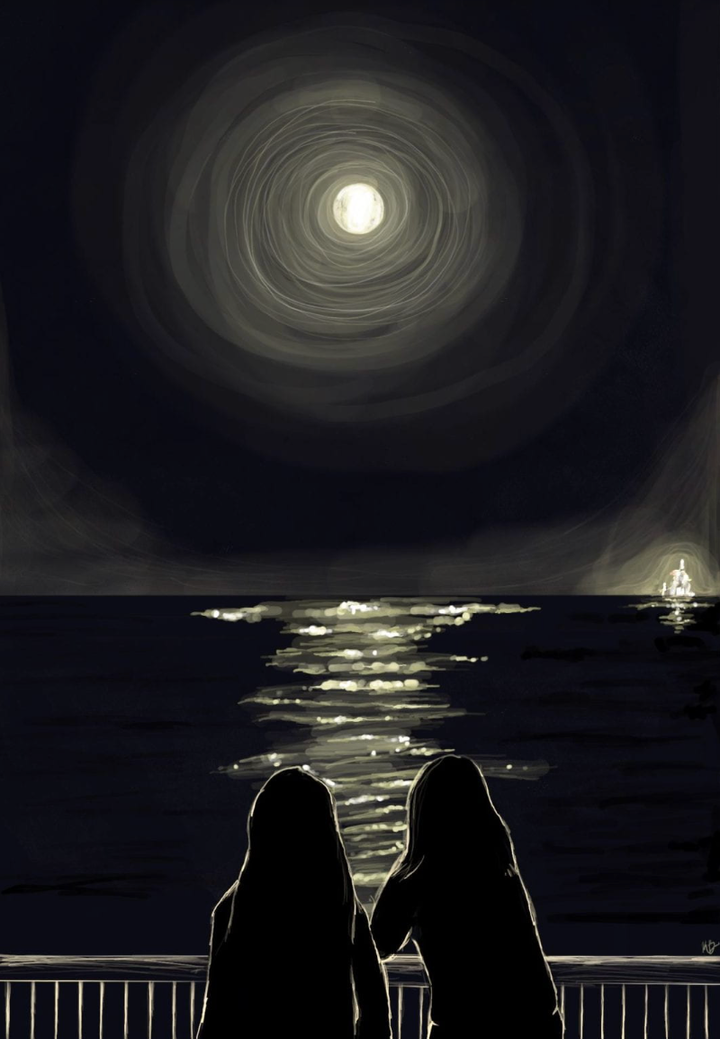Satire: The Secret, Startling Seventh Ten Minute Play
Remember the Green Room Ten Minute Play Festival earlier this month? Joe Sweeney ’25 pokes fun at the festival, reviewing a fictitious seventh play which he deems unwatchable.


On April 6, The Student published an article covering the Ten Minute Play Festival, which took place in Johnson Chapel from April 1 to 3. The article offered succinct synopses, and having attended the festival, I found myself nodding in assent to many of the points raised about the plays’ respective merits. However, I must point out a notable omission: while the six plays reviewed were indeed brilliant, moving, and profound, the article seems to have neglected mentioning the seventh play — a piece of mammalian excrement for which its playwright should be summarily executed.
The play, titled “Soliloquy To A Slough-Trough,” is a production written and directed by Justin Sprader ’23. It follows Bedelia Splenetic (Ginny Weisert ’25) as she goes about her daily chores at the Splenetic family cow farm. However, in contrast with her life’s day-to-day mundanities, Bedelia aspires to be an actor on the world’s greatest stages. Just that morning, she receives word from the Minnesota Traveling Shakespeare Company that they are willing to take her on for the role of Shylock in “The Merchant of Venice.”
But there’s a rub: Bedelia’s father (Martin Buselly ’23) is on his deathbed, and without either of them there is no one to run the farm (her mother, the play briefly explains, died shortly after giving birth, when she fell victim to a spontaneous cow trampling). Torn between her dreams and obligations, Bedelia turns to the passion of Shylock’s famous soliloquies to work out her tumultuous emotions, addressing various bovines in place of the father she cannot yet face.
I admit, those could be the makings of a fine play. And reader, before you write me off as a cynic, know that I was once a person who possessed great sympathies toward all artistic creations. I believed that anyone was capable of making great art: the soul stirring variety, the genuine article.
What joy there is in simply reveling in one’s own powers of expression! Wasn’t it Baudelaire, that wide-wingéd poet, who said after all that “genius is nothing more nor less than childhood recaptured at will”? Does not this potentiality lie in all of us, and thus should not each and every one of us strive toward its actualization?
Reader, reader, reader, this is what I believed. These are the ideals that have sustained me through many bitter nights. I was so enamored. So enchanted.
So terribly wrong.
I didn’t think it was possible that a mere 10-minute play, wrought from a college student’s measly, pale hands (how could they be so pale?), could render all art worthless to me. I went into this play with charmed, healthy beliefs, and came out utterly convinced that the “play” should never have been invented. Yes, we would be without Shakespeare, Goethe, Ibsen, Beckett — but we would also be free of Justin Sprader.
But it is too late now. I have viewed his atrocity, and its suckiness has sealed my joy in a tomb from which nothing may spring anew. My soul has been vandalized and defiled. Every day since that fateful play festival, I walk the streets mournfully, feeling as if one of the Splenetics’ cows had taken a piss on my very soul. The cool light air of campus, the smiles of my friends, the consolations of my therapist: nothing washes away my yellowed shame.
Please try to understand, reader, why my account of the play is so obscure. I fear that a more detailed description would affect your own constitution; your own capacity to live in this world as a person with hope. Because whatever that hope may be — hope for the future, hope for your future children, hope for your future children’s future — I assure you that this play will kill it dead. Before I saw this play, I did not know the true meaning of empathy. Now I grasp it easily: Let me shield your eyes, before this horror ruins you as it ruined me.
Yet the true cruelty of its wretched filth has still not been revealed. For though it robbed me of my happiness, it did not rob me of my intellect, and thus I was forced in my memory to agonize over the conditions of its existence. Whose was the mind, tortured, sadistic, blithely moronic, that could conceive of such unmitigatedly potent trash?
I contacted Sprader to put the question to him: why did you write this play? Sprader, however, in his blinding vanity, did not catch the drift of my repulsion, and instead answered genuinely — as if he had nothing to be ashamed of. This is what he had to say for himself:
“Yeah I don’t know. It’s kind of about my life, the dreams I have for my life, but also the guilt I feel for the people I’ve left behind. I know, I know, I haven’t ‘left them behind,’ I can go back anytime they need me. And even if I didn’t go back, even if I was doing all this for myself, I’d still be doing it for them, for my family. I couldn’t help it, even if I tried. And that’s what I tell myself, but it’s also something I can’t make them understand. And them not understanding is … it’s really, really lonely. Because it’s like, that’s what matters, you know? Them seeing the part of me that will always be a part of them — that’s what matters, and they don’t see anything. They look right through me. So guilt has always been the next best thing for me."
“But what I realized through this play was that I could be grateful for that guilt. That it didn’t have to only be something that I owed my family. And so when Bedelia is making speeches to the cows, that’s me laughing at my guilt, but it’s also me holding it really close. Because no matter how lonely it makes me feel, it's something that I feel. And I want to feel everything about what I feel. Not just the bad parts, but the good parts, and the bad parts beneath the good parts. All of it. I do.”
Having opened up so completely, Sprader moved me to tears. I had never heard anyone say anything so profoundly stupid. I had never met someone so profoundly lacking the ability to clearly express themself, so profoundly devoid of even the remotest sign of intelligence.
And the horror, when he just went on and on. He might have said even more, had I not run out of the interview to my dorm, locked myself in my room, and proceeded to rock back and forth, knees pulled to my chest, trembling, wondering: Who asked? Who asked? Only to realize that it was me. I was the one who asked.
For that … I will never forgive myself.
Do not watch “Soliloquy To A Slough-Trough” on the Green Room’s YouTube page. It will ruin your life. And if you happen to be super rich, rich enough to, say, surreptitiously murder someone and face minimal legal consequences, I strongly urge you to perform that action. Don’t worry about me; this article is not admissible in court. I talked it over with my lawyer. It was a long talk.





Comments ()